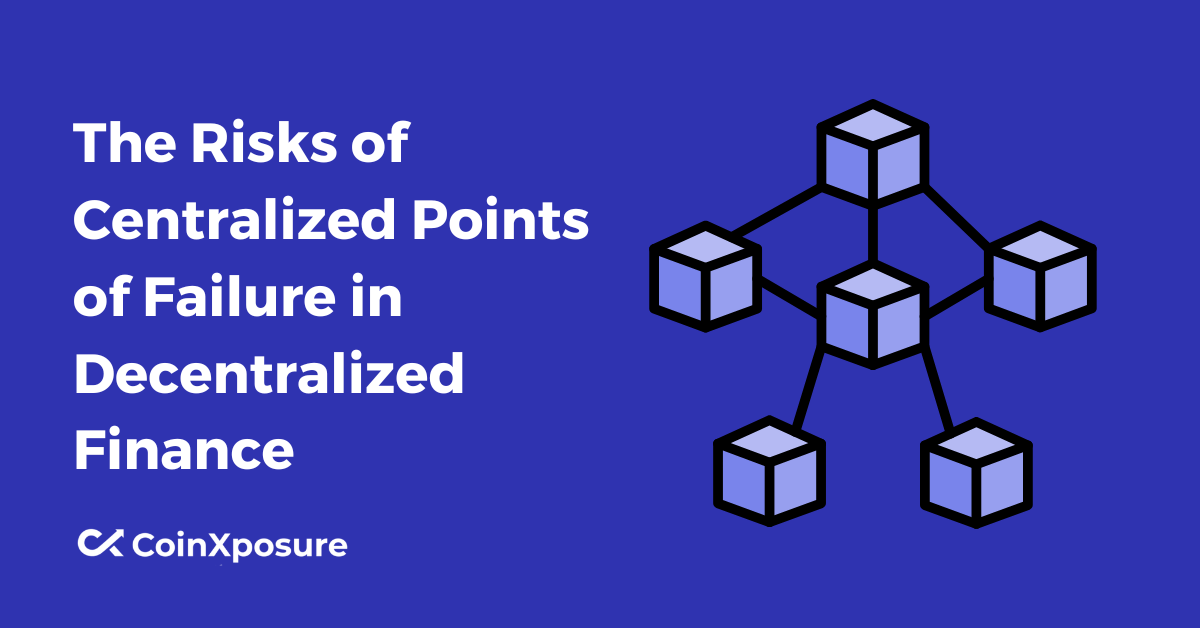The surge of Decentralized Finance (DeFi) has revolutionized traditional financial systems by offering open and borderless access to various financial services.
However, this innovative landscape is not without its challenges. One critical aspect is the inherent risk associated with centralized points of failure within decentralized frameworks.
This introduction explores the vulnerabilities present in DeFi, focusing on smart contract flaws, oracle dependencies, and governance issues, shedding light on the potential repercussions for users and the broader financial ecosystem.
Centralized Points of Failure in Decentralized Finance
Centralized Points of Failure in DeFi pose significant risks to the stability and security of decentralized financial ecosystems. Three key areas of concern include:
- Smart Contract Vulnerabilities
- Oracle Risks
- Governance and Decision-Making
Smart Contract Vulnerabilities
Code Exploits and Bugs: DeFi platforms heavily rely on smart contracts, which, if not thoroughly audited, may contain vulnerabilities exploited by malicious actors.
Lack of Standardized Security Practices: Inconsistent security standards across projects can lead to weaknesses, making them susceptible to exploitation.
Oracle Risks
Dependence on Centralized Data Sources: DeFi platforms often rely on oracles to fetch external data. If these oracles are centralized, they become potential single points of failure susceptible to manipulation.
Manipulation or Compromise: If oracles are compromised or manipulated, inaccurate data can lead to incorrect financial decisions and substantial losses.
Governance and Decision-Making
Centralization of Decision-Making Power: Some DeFi projects have governance structures with concentrated decision-making power, which, if controlled by a few entities, can compromise the decentralized nature of the platform.
Potential for Malicious Governance Attacks: Malicious actors may exploit governance vulnerabilities to implement harmful changes, impacting users and the platform’s integrity.
Addressing these centralized points of failure is crucial for the sustained growth and security of the DeFi ecosystem.
Security Concerns in Decentralized Finance
Security concerns in the realm of decentralized finance (DeFi) are paramount, presenting challenges that demand vigilant attention:
- Hacks and Exploits
- Regulatory Risks
Hacks and Exploits
Historical instances of DeFi platforms falling victim to hacks underscore the vulnerabilities within the ecosystem.
Exploits targeting smart contract vulnerabilities can result in significant financial losses for users.
Regulatory Risks
DeFi platforms face an evolving regulatory landscape, with potential legal challenges affecting their operations.
Regulatory uncertainties may impact user confidence and the long-term viability of DeFi projects.
Mitigating these security concerns necessitates proactive measures, such as robust smart contract auditing, implementing secure coding practices, and navigating regulatory frameworks to ensure compliance.
Failure to address these issues could undermine the trust and stability of the entire DeFi space.
Mitigation Strategies
To address the risks associated with centralized points of failure in DeFi, implementing robust mitigation strategies is imperative:
- Smart Contract Audits
- Decentralized Oracles
- Improved Governance Models
Smart Contract Audits
Conduct thorough audits of smart contracts by reputable third-party firms to identify and rectify vulnerabilities.
Regularly update and enhance code security through continuous monitoring and auditing processes.
Decentralized Oracles
Diversify data sources by using multiple oracles to reduce dependency on a single point of failure.
Implement tamper-resistant data feeds to enhance the reliability of external information.
Improved Governance Models
Foster decentralization in decision-making processes to prevent concentration of power.
Incorporate consensus mechanisms and user input to ensure a more inclusive and secure governance structure.
Implementing these mitigation strategies collectively builds a more secure, resilient, and user-friendly decentralized financial ecosystem.
Conclusion
The decentralized nature of finance brings about transformative opportunities but is accompanied by significant risks, particularly in the form of centralized points of failure.
The vulnerabilities in smart contracts, dependence on centralized oracles, and governance challenges underscore the importance of proactive measures.
Mitigating these risks involves continuous improvement in security practices. Thorough smart contract audits, diversified oracle sources, and enhanced governance models contribute to fortifying the foundations of decentralized finance.
Additionally, user education, awareness, and regulatory compliance are pivotal in fostering a secure and sustainable DeFi ecosystem.
As the DeFi space evolves, stakeholders must remain vigilant, adaptive, and committed to implementing best practices.
Addressing and mitigating the risks associated with centralized points of failure is essential for safeguarding user assets and fostering trust and longevity in the decentralized finance landscape.












